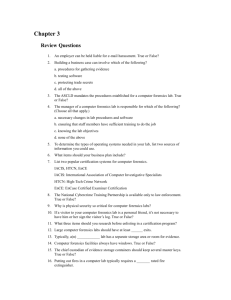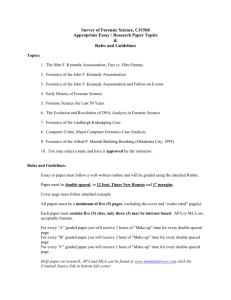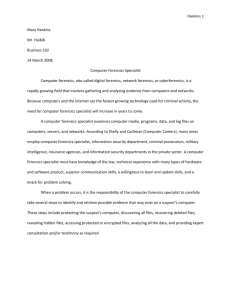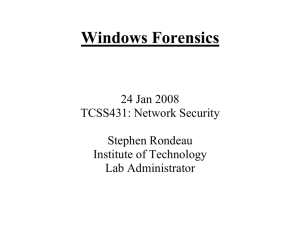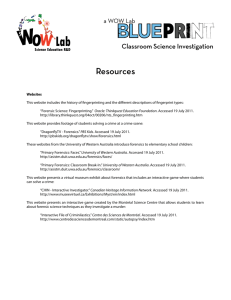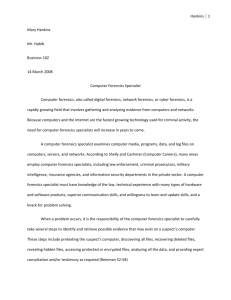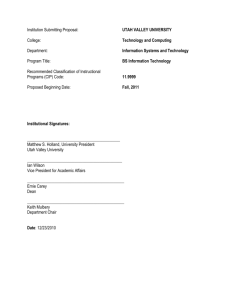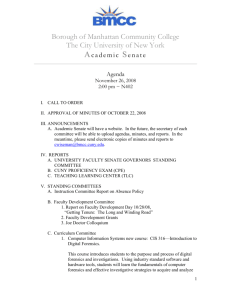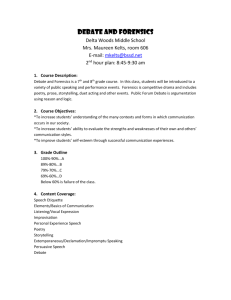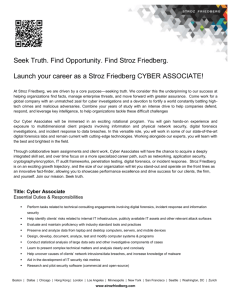Gun Control-Feature Article
advertisement
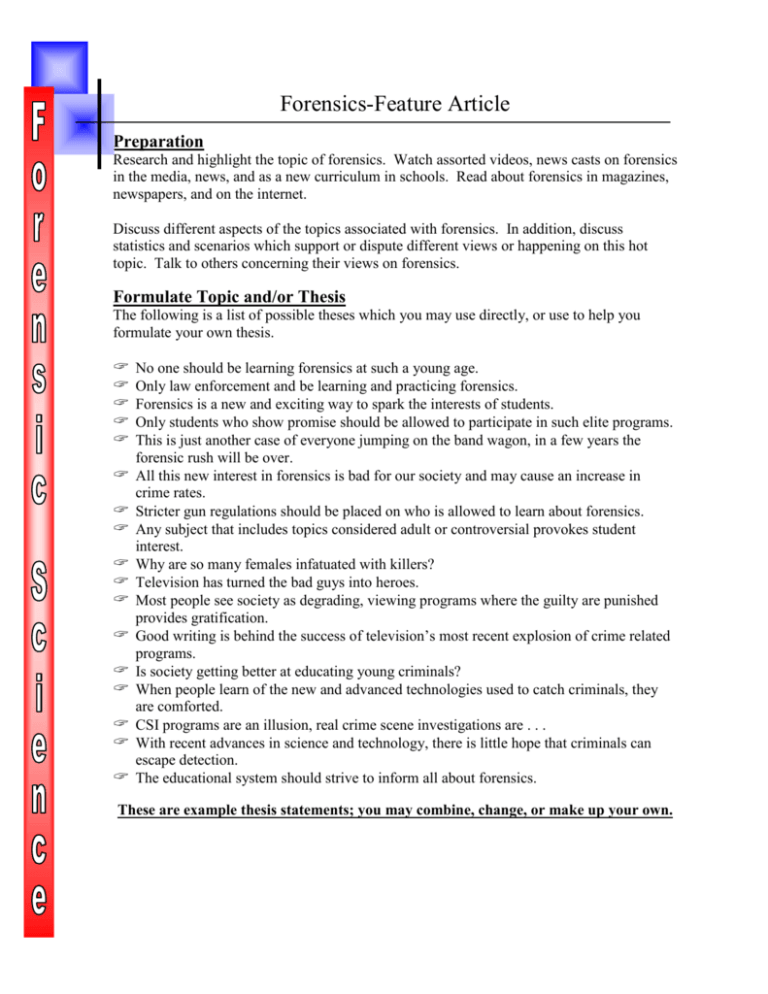
Forensics-Feature Article Preparation Research and highlight the topic of forensics. Watch assorted videos, news casts on forensics in the media, news, and as a new curriculum in schools. Read about forensics in magazines, newspapers, and on the internet. Discuss different aspects of the topics associated with forensics. In addition, discuss statistics and scenarios which support or dispute different views or happening on this hot topic. Talk to others concerning their views on forensics. Formulate Topic and/or Thesis The following is a list of possible theses which you may use directly, or use to help you formulate your own thesis. No one should be learning forensics at such a young age. Only law enforcement and be learning and practicing forensics. Forensics is a new and exciting way to spark the interests of students. Only students who show promise should be allowed to participate in such elite programs. This is just another case of everyone jumping on the band wagon, in a few years the forensic rush will be over. All this new interest in forensics is bad for our society and may cause an increase in crime rates. Stricter gun regulations should be placed on who is allowed to learn about forensics. Any subject that includes topics considered adult or controversial provokes student interest. Why are so many females infatuated with killers? Television has turned the bad guys into heroes. Most people see society as degrading, viewing programs where the guilty are punished provides gratification. Good writing is behind the success of television’s most recent explosion of crime related programs. Is society getting better at educating young criminals? When people learn of the new and advanced technologies used to catch criminals, they are comforted. CSI programs are an illusion, real crime scene investigations are . . . With recent advances in science and technology, there is little hope that criminals can escape detection. The educational system should strive to inform all about forensics. These are example thesis statements; you may combine, change, or make up your own. Write an Outline After formulating a thesis, write an outline similar to the following format. You may include more detail on your outline, but no less. Title I. Thesis-_____________________________________________________________ _______________________________________________________________ _________________________________________. II. 1st Main Point _______________________________________________________ III. 2nd Main Point________________________________________________________ IV. 3rd Main Point________________________________________________________ VI. Conclusion: Writing the Article Your article should be very involving. You want to shock, reason, or trick the reader into seeing things your way. Use data and examples which stress your points. You must entertain and inform the reader simultaneously. The title and the introduction are extremely important. A good title increases the chances of some one reading your article. If you have not captured the reader’s interest by the end of the first paragraph, they will likely not finish. Use your introduction to convince the reader to read the rest of your article. Begin with a staggering statistic, situation, or claim. The main body of the article should concentrate on backing your main purpose. Choose a few different points to discuss. Use logic, statistics, examples, and any other method you can think of to back your opinion. Headers are also helpful. The conclusion of your article should re-emphasis your main points and leave the reader with something to think about. It may or may not contain a recap or restatement of your thesis. Format Your article must be in a format which would be fit for a magazine or newspaper. Look at magazine and newspaper articles. Model the format of your article after these. That is, make it user friendly and esthetically pleasing. Your article must have an interesting title, be written in column form, and contain pictures. Your article should be exactly one, two, or three pages, including several of the following attributes: Situations Key Words Subject Headings Opinions Graphs Scenarios Supporting Statistics References Quotes *Any picture or graph used in your article must be referenced.*
